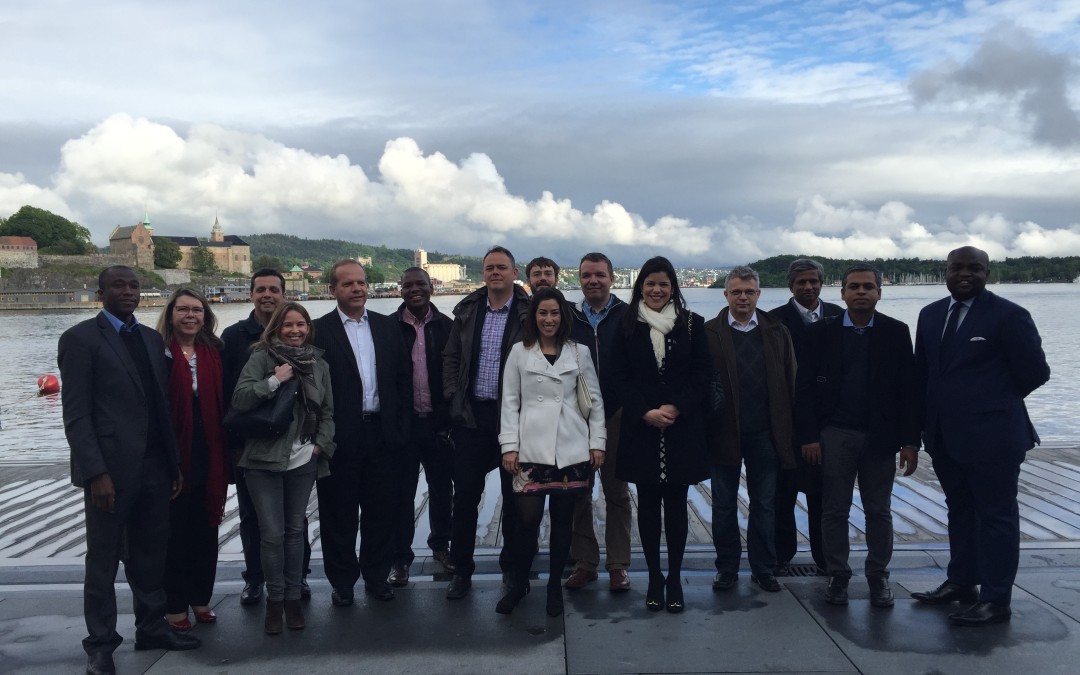At the last INTOSAI Governing Board meeting the Task Group on INTOSAI Certification of Auditors was mandated to develop a core competency framework for public sector auditing that will be piloted within INTOSAI in order to test INTOSAI certification feasibilities as per the planned timelines set out in the Task Group’s 2014 White Paper on professional development in INTOSAI. This initiative took a big step forward when from 17-19 June this year, members of the Task Group met in Oslo, Norway, to conceptualise a framework that will inform the design of core competencies which are unique to the professional development of public sector auditors across the globe.
The main objectives of the workshop were to –
- analyse, define and standardise core competency framework concepts
- define and agree to an outline framework of the proposed core competency framework, and
- define the enabling process to take the initiative forward.
The workshop took place in the context of the challenges outlined in the White Paper on Professional Development in INTOSAI, and at the beginning of the workshop the participants agreed to produce at least three deliverables in preparation for the 2016 INTOSAI Governing Board and INCOSAI, namely:
- A discussion document outlining a draft competency framework,
- A concept document dealing with a future pilot project, to be handled by the IDI, based on the draft competency framework, and
- A position paper on the need for specific standards and guidance regarding education, training and capacity development.
Please click on the following link to access a two page infographic on the work done at the Oslo workshop: INTOSAI Infgr Report Q1. It illustrates the principles derived at as potential drivers for the future work of the Task Group, and on the second page provides an idea of the core and technical/functional competencies for the three main audit disciplines, as well as the Task Group’s main deliverables and key activities for the next six months. It should be noted that the circular depiction of core and functional competencies should be regarded as an initial framework only – the Task Group will be carrying out more research and consultation on global competency requirements, with an emphasis on insight to be gained from the broadest possible spectrum of INTOSAI role players, especially the regional structures.
A detailed report on the recent Oslo workshop is available at the following link INTOSAI Workshop Narrative Q1 wherein you can find more detail about –
- The planning for the workshop,
- The interviews conducted before the workshop (and a summary of key inputs)
- The detailed work sessions that played out at the workshop, with emphasis on:
- Expectations (linked to decisions, actions and reference to some of the models the Task Group is considering using)
- A review of the 2014 whitepaper (analysed in the same way as the expectation session)
- A session to define and understand the concepts at hand, with emphasis on handy models that can guide the development process
- A trial-run in using the concepts (keeping in mind that these were not finalised)
- A confirmation of principles that the group believes should guide the process going forward.
- A theoretical research plan that will have to be considered and tailored to the needs of the INTOSAI community.
The Task Group will provide a progress report at this year’s annual CBC meeting taking place in Stockholm 8-10 September, and also at the meetings of the IDI Board, the Finance and Administration Committee and the Governing Board scheduled for later this year.
In the meantime comments and suggestions are most welcome and can be sent to: secretariat@intosaicbc.org.

